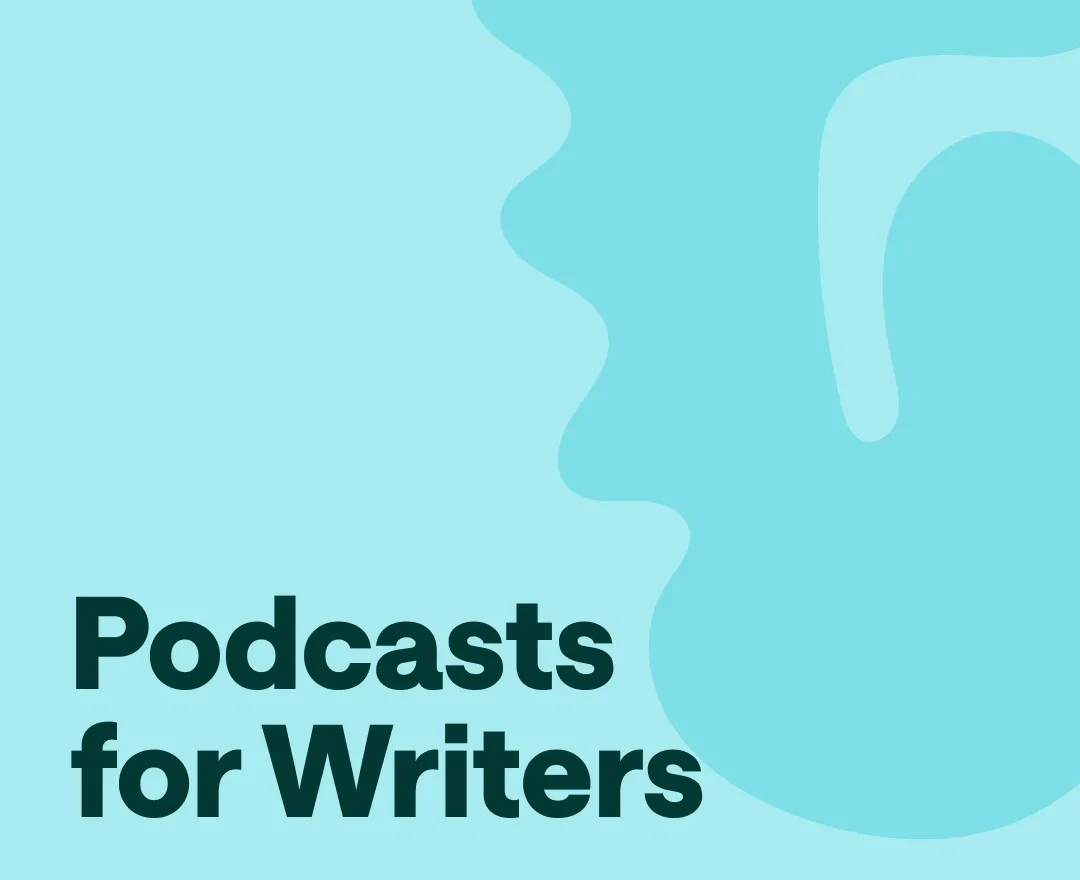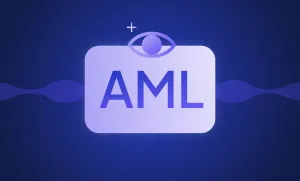The versatility, accessibility, and ability of the podcasts to entertain, teach and motivate are hard to beat. While gaining worldwide popularity in the last decade, podcasts have conquered almost every aspect of our life. And there's no shortage of podcasts for writers who want to overcome writer's block, improve their craft, or make a dull ride more enjoyable. There's an infinite universe of audio storytellers ready to fill your ears with the written word.
So, for established or amateur writers, there's a lot to be gained from the virtual book clubs and writer communities behind the podcasts for writers that we've listed below. No matter if you want to get guidance on the writing process, become proficient in the fundamentals of great literature or the publishing industry, or search for muses for your inspiration, we've got your back. This is where podcasts can become a valuable resource to support your creative practice. So, sit back and enjoy one of these inspiring podcasts for writers.
1. It's Lit [Unabridged]
Being the podcast spin-off of the popular PBS YouTube series by the same name, It's Lit features lively conversations with noted writers about their work, discussions about influential novels, and issues related to books and literature. Covering a wide range of genres, the podcast delivers refreshingly new takes and significantly more relatable perspectives on literary discourse.
2. The Writer Files: Writing, Productivity, Creativity, and Neuroscience
With a new episode each week, the podcast explores the secrets of productivity and creativity of renowned writers and how the great minds keep the ink flowing, the cursor moving, and avoid writer's block.
3. Grammar Girl Quick and Dirty Tips for Better Writing
Founded by Mignon Fogarty, the podcast provides short, friendly tips on grammar, punctuation, style, and business to improve your writing and help you become a better and more successful writer. Grammar Girl covers grammar rules and word choice guidelines that can be confusing to even the best writers and uses memory tricks to make complex grammar questions simple and help you remember and apply those complicated grammar rules.
4. DIY MFA Radio
The podcast, hosted by instigator Gabriela Pereira, offers a set of tools for writers who want to diversify and improve their skills. Based on the traditional MFA speaker series, in which writers and industry experts talk to students about writing, the show is available to anybody with an internet connection. DIY MFA Radio explores everything from the obvious to the practical and the unusual.
5. Writing Excuses
The fast-paced, educational show is a fifteen-minute podcast that focuses on the craft behind creative writing. Hosted by authors Dan Wells, Brandon Sanderson, Mary Robinette Kowal, and author and web cartoonist Howard Tayler, the podcast discusses different topics involved in the creation and production of genre writing and webcomics.
6. Writers, Ink
Hosted by three bestselling authors, Writers, Ink is a show about the business of writing. Each episode interviews a working writer to explore an aspect of being a professional in today's industry. The podcast is ideal for those who are seeking to establish a career in writing but who don't have the luxury of unlimited time to make it happen.
7. Between the Covers
Hosted by David Naimon, the podcast features interviews with today's top writers in fiction, nonfiction, and poetry. These long-form, in-depth conversations have been singled out by the Guardian, Book Riot, and the Financial Times as one of the most notable book podcasts for writers and readers around.
8. The Creative Writer's Toolbelt
Hosted by Andy Chamberlain, the author of the science-fiction book The Centauri Survivors, this short 30- to 45-minute podcast provides lessons on how to improve your writing. Other episodes include a variety of notable authors who work in a number of areas, including television and comic books. The podcast, which features writers, journalists, playwrights, poets, and others, gives a unique perspective on how to approach a specific craft.
9. Writer's Routine
This arts and culture podcast for writers explores the daily diary of a writer to peak at the secrets of their success and find out how they plan their day and maximize their creativity. The podcast got a Silver award in 'Best Culture' at the 2018 British Podcast Awards, featured in magazines, and has thousands of listeners a month from across the world.
10. Helping Writers Become Authors
This podcast focuses on how to turn an aspiring writer into a published author. It helps writers in coming up with ideas, developing strong characters, planning and structuring novels, and refining their work. The podcast will teach how to create and edit a book into a story that readers will like.
11. The Creative Penn Podcast
Hosted by Joanna Penn, "The Creative Penn Podcast" is designed for writers looking to turn their passion for writing into a career. The podcast covers self-publishing, book marketing, author entrepreneurship, and creative writing tips. It often features interviews with successful authors and publishing professionals.
12. The Moth
"The Moth" is a storytelling podcast that features people sharing personal, true stories in front of a live audience. While not specifically a writing advice podcast, it's a great source of inspiration for writers looking to improve their storytelling skills and understanding of narrative structure.
13. The Story Grid Podcast
Hosted by Shawn Coyne and Tim Grahl, "The Story Grid Podcast" offers a deep dive into the art and science of story structure and editing. Coyne, an experienced editor and author, analyzes popular books and movies to help writers understand the principles of effective storytelling. This podcast is particularly helpful for writers looking to improve their manuscript editing skills and enhance their understanding of story structure.
14. The Dead Robots' Society
"The Dead Robots' Society" is a podcast by writers, for writers. Hosted by a group of aspiring authors, this podcast covers various aspects of the writing journey, including self-publishing, genre writing, and the ups and downs of the creative process. It's a great listen for those who appreciate candid discussions about the challenges of writing.
15. Literary Friction
Hosted by Carrie Plitt and Octavia Bright, the show includes interviews with authors, book recommendations, literary discussion all built around a particular theme. It touches on everything from race to masculinity to romance.
How to Become a Writer with No Experience
Becoming a writer with no experience is absolutely achievable. Writing is a skill that can be developed over time, and everyone starts somewhere. Here are some steps to get started as a writer with no prior experience:
- Read Widely: Before you start writing, it's essential to read extensively. Explore a variety of genres and styles to understand what resonates with you and what kind of writing you enjoy. This will also help you learn different writing techniques.
- Start Writing Regularly: The key to becoming a writer is to write consistently. Set aside dedicated time each day or week to practice writing. Even if you're not sure what to write about, just start putting words on the page.
- Journaling: Keeping a journal is an excellent way to get into the habit of writing. It allows you to express your thoughts, feelings, and observations. It's a safe space to experiment with your writing without the pressure of a larger audience.
- Writing Prompts: Use writing prompts or exercises to spark your creativity. There are numerous writing prompt books and websites that can provide you with ideas to start writing about.
- Join a Writing Group: Consider joining a writing group or workshop in your area or online. These groups provide constructive feedback, encouragement, and a sense of community among fellow writers. It can be particularly valuable for beginners.
- Learn the Craft: While you don't need a formal education to become a writer, studying the craft of writing can be immensely helpful. There are countless books, online courses, and resources on writing techniques, grammar, and storytelling.
- Edit and Revise: Writing is often rewriting. Don't be discouraged by your first drafts; they're meant to be imperfect. Learn how to self-edit and revise your work to make it better over time.
- Set Goals: Establish writing goals for yourself. Whether it's a word count, finishing a short story, or submitting your work to a publication, having goals can provide motivation and structure.
- Read About the Writing Industry: If you're interested in publishing your work, take some time to learn about the writing industry. Understand the submission process, different publishing options, and how to query literary agents or publishers.
- Perseverance: Writing can be a challenging and often solitary endeavor. Be prepared for rejection, criticism, and self-doubt. Perseverance is key to success in the writing world.
- Network and Seek Feedback: As you gain more experience, consider seeking feedback from peers, mentors, or writing communities. Networking can help you find opportunities for publication and connect with other writers.
- Publish Your Work: Once you have some pieces that you're proud of, start submitting to literary magazines, websites, or self-publish your work. The act of sharing your writing with a wider audience is a significant step in becoming a writer.
How to Come Up with Ideas for Books
Coming up with book ideas can be both exciting and challenging. Here are some strategies to help you generate creative and compelling book ideas:
1) Draw from Personal Experience
Reflect on your own life experiences, emotions, and challenges. Personal stories can be a rich source of material for memoirs, autobiographies, or novels.
2) Read Widely
Reading a wide range of books and genres can spark your imagination and help you discover different writing styles and themes. Pay attention to what resonates with you.
3) Ask "What If?" Questions
Start with a simple "What if?" question and build a story around it. For example, "What if time travel were possible?" or "What if a person could read minds?"
4) Observe the World
Pay close attention to the world around you. Observing people, places, and events can provide inspiration for characters, settings, and plot points.
5) Use Writing Prompts
Writing prompts are brief ideas or sentences meant to stimulate your creativity. You can find prompts in books, websites, or apps designed for writers.
6) Reimagine Classics
Put your unique twist on classic stories, myths, or legends. Consider how they might play out in a different time period or setting.
7) Combine Ideas
Combine two unrelated ideas or concepts to create something new. The intersection of different elements can lead to fresh and innovative story ideas.
8) Explore Themes and Questions
Think about themes or questions that intrigue you. What are the big ideas or issues that you'd like to explore in your writing? Use these as a foundation for your book.
9) Brainstorm with Others
Collaborate with friends or writing groups to brainstorm ideas. Sharing and discussing ideas can lead to new perspectives and concepts.
10) Daydream and Mind Mapping
Spend time daydreaming and let your mind wander. Jot down any interesting ideas that come to you. Mind mapping, a visual technique that helps organize thoughts, can also be helpful.
Best Podcasts for Writers
- It's Lit [Unabridged]
- The Writer Files: Writing, Productivity, Creativity, and Neuroscience
- Grammar Girl Quick and Dirty Tips for Better Writing
- DIY MFA Radio
- Writing Excuses
- Writers, Ink
- Between the Covers
- The Creative Writer's Toolbelt
- Writer's Routine
- Helping Writers Become Authors
- The Creative Penn Podcast
- The Moth
- The Story Grid Podcast
- The Dead Robots' Society
- Literary Friction








